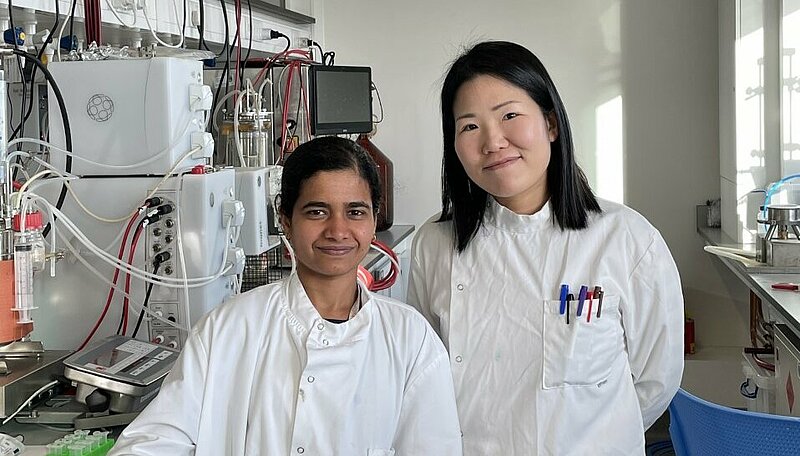Sustainable Research – My Green Lab
Waste is a constant problem in labs. Among all industries, laboratories are among the most resource-intensive. Nevertheless, this does not have to be the case. My Green Lab has helped tens of thousands of people improve their work by introducing a holistic perspective. As a result, there has been a culture of sustainability within the lab.
My Green Lab is a non-profit organization dedicated to promoting sustainability in research labs around the world. Scientists have a unique opportunity to make a positive impact on the environment through the way they conduct their research. One of the main goals of My Green Lab is to reduce the environmental impact of research labs by promoting more sustainable practices. This includes reducing energy consumption, minimizing waste, and using environmentally-friendly products and materials. One way My Green Lab is working to achieve these goals is through the implementation of its Lab Sustainability Certification program. This program recognizes and rewards labs that are taking steps to become more sustainable. To receive certification, labs must meet a set of criteria that includes reducing energy consumption, reducing water usage, and implementing waste reduction and recycling programs.
But what specific actions can labs take to become more sustainable?
- Reduce energy consumption: Labs can invest in energy-efficient equipment and appliances, turn off equipment when not in use, and make sure to properly maintain equipment to ensure it is running efficiently.
- Minimize waste: Labs can implement waste reduction and recycling programs, purchase products with minimal packaging, and properly dispose of hazardous materials.
- Use environmentally-friendly products and materials: Labs can choose products and materials that are made from sustainable or recycled materials, and look for products that are designed to be reused or recycled at the end of their lifespan.
- Purchase renewable energy: Labs can invest in renewable energy sources, such as solar panels or wind turbines, to offset their energy consumption.
- Educate and engage staff: Labs can educate staff about sustainability practices and encourage them to participate in initiatives to reduce the lab's environmental impact.
In addition to the Lab Sustainability Certification program, My Green Lab also offers resources and support for labs looking to become more sustainable. This includes educational workshops, a comprehensive guide to sustainable lab practices, and a network of experts who can provide guidance and support to labs working to improve their sustainability. That happened at the University College Dublin in Ireland.
Karthika Balusamy and Kate Jounghyun Um, Ph.D. Researchers at the School of Biomolecular and Biomedical Science at the University College Dublin in Ireland explain how their lab uses the My Green Lab certification to make their work more sustainable. “Our focus is on three main points: Consumables, Energy usage, and Waste Management.”, explains Karthika Balusamy. And there is a high potential for savings, especially with disposable products and packaging. "We have replaced products that we previously used in the form of plastic with glass or metal goods. These can be reused and thus no longer contribute to our laboratory waste."
But it doesn't stop with the equipment. The way the products arrive at the laboratory has also been improved. "We've talked to suppliers and manufacturers and actively sought out alternative suppliers that create less avoidable single-use waste in transportation. This has enabled us to save a large proportion of styrofoam," says Kate Jounghyun Um.
Energy usage is the second area their lab focused on. Balusamy: "We saw great potential for saving electricity. We have found that adjusting our freezers from -80°C to -70°C has little effect on their contents, but makes a significant difference in energy consumption. We also use automated timers and energy meters so we save on unnecessary electricity and can measure the current that is used by our instruments.”
Lastly, waste management issues were tackled. Disposable gloves make up a massive portion of lab waste. To address this problem, Jounghyun, Balusamy, and their colleagues are using a recycling system that recycles used gloves. The Kimtech™ Nitrile Glove Recycling Program recycles disposable gloves as locally as possible and with the available technologies and infrastructures. The gloves made from nitrile and Latex are processed using an extruder to produce plastic granules, which serve as a secondary raw material for new plastic products. Disposable gloves can be further processed to become the raw materials used to make the likes of park benches, waste bins, or watering cans.
Another improvement in waste management is the strict segregation of aluminum foil, which is collected separately for efficient recycling.
All of us need to do our part in protecting the environment, and research labs have a unique role to play in this effort. By supporting organizations like My Green Lab, and implementing sustainable practices in our labs, we can help make a positive impact on the planet and ensure that our research is conducted in an environmentally-responsible way.


